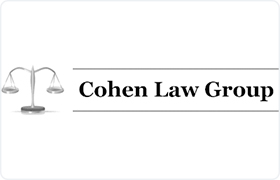 Weston Eminent Domain Lawyers, Massachusetts
Weston Eminent Domain Lawyers, Massachusetts
Sponsored Law Firm
-
 x
x

Click For More Info:
-
Cohen Law Group
500 Commercial St Unit 4R Boston, MA 02109» view mapBusiness, Real Estate, Accident & Injury Over 50 Years Of Experience
With over 50 years of experience, the Cohen Law Group is a well-established law firm located in the heart of Boston’s historic North End.
800-790-5110
Lawyers
1-6 of 6 matches
Land Use & Zoning, Eminent Domain, Real Estate, Banking & Finance
Eminent Domain, Banking & Finance, Labor Law, Construction
Election & Political, Eminent Domain, Civil Rights, Whistleblower
Eminent Domain, Cogeneration, Trusts, Reorganization, Child Custody
Military & Veterans Appeals, Eminent Domain, Litigation, Antitrust



 Herbert Cohen Boston, MA
Herbert Cohen Boston, MA Practice AreasExpertise
Practice AreasExpertise